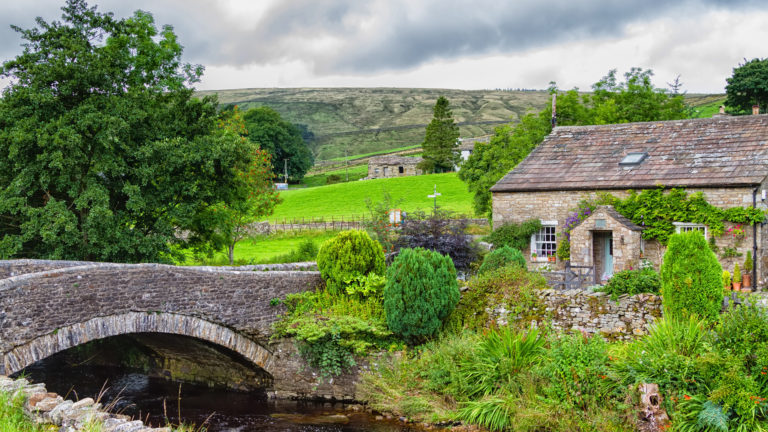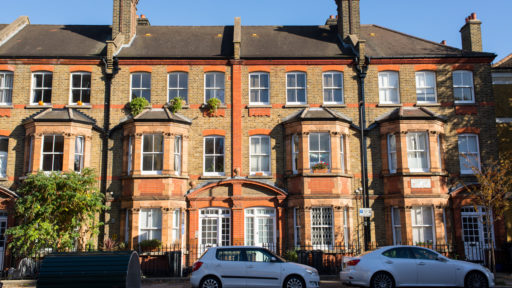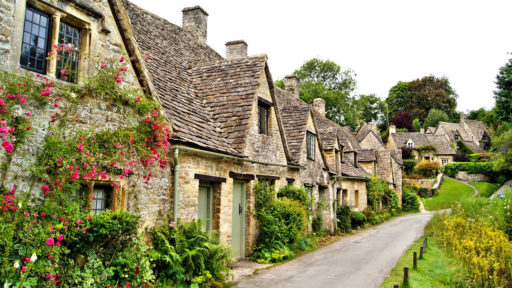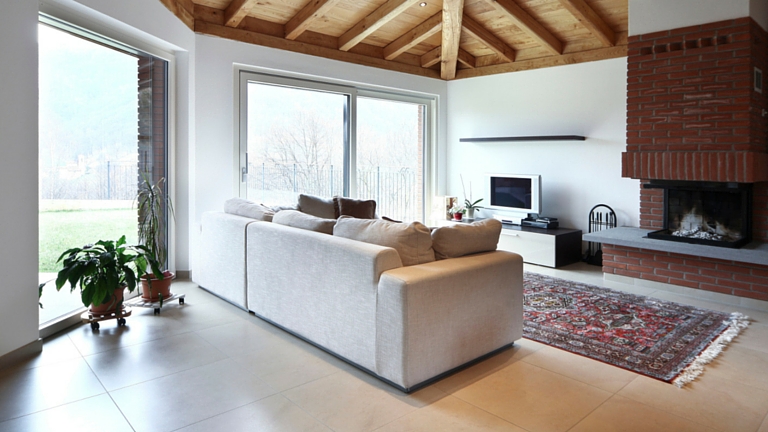Guide to buying and renting out a holiday let

If you’re considering buying and renting out a holiday home there’s plenty to think about, from finding the right location and property, to tax and holiday let insurance implications.
In this comprehensive guide we’ll explore every aspect to buying a holiday home and successfully renting it out.
- What is a holiday let?
- Buying a holiday let for the right reasons
- Where and what type of holiday home should you buy?
- Finances, rules, and regulations for holiday lets
- Managing your holiday let, advertising, and rental prices
- Preparing your holiday let for visitors
- What insurance do I need for a holiday let?
What is a holiday let?
A holiday let is a property rented out on a short-term basis for holidays, but the term can also include other short-term rentals such as properties let out to business travellers.
Holiday lets are rented out for short periods and are fully furnished to provide a home-from-home experience.
Properties can range from flats in towns and cities popular with tourists and business travellers, to entire homes and cottages on the coast, or in other areas popular with visitors.
Buying a holiday let for the right reasons
While you’re still in the consideration stage, you need to carefully think through your motivation for buying a holiday let.
Do you primarily want somewhere you, your family and friends can escape to? Is your primary motivation to generate income from rent? Do you view it as a long-term investment? Or is it a mixture of all three?
Working out clear objectives at the outset will influence many of the decisions you’ll make.
If you want to maximise rental income, bear in mind that you’ll make the most money from renting out in peak holiday times, which limits the amount of use you’ll get out of the property yourself. If you’ll mostly be using it yourself, you’ll want to be sure it’s in a destination you’ll want to return to. You’ll also need to work out how much time you can devote to running a holiday let, although for a cost you can appoint daily management to a holiday letting agency.
If you’re considering buy-to-let as an option instead, read more here: Is buy-to-let worth it?
Where and what type of holiday home should you buy?
What’s the best location for a holiday let?
The first thing you need to think about is location. The best place to own a holiday home is clearly a popular location for tourism. You can look at existing holiday rental websites to get an idea of the likely income for each month of the year for different locations.
Properties with higher income yields will be more expensive to buy, but they are also likely to be the best for long-term investment.
Things to consider when choosing a holiday let location:
- Is the property easily accessible? Is there car parking? Is there good public transport?
- What amenities are nearby? Are there restaurants, tourist attractions, pubs, country walks etc within easy reach?
- How far away from your home is the property? This is important if you are thinking of managing the rental yourself, as you will need to be on hand to deal with any issues and keep up with the maintenance.
- What type of guest do you want to attract?
- If the long-term aim is to retire to your holiday home, can you see yourself living in your chosen location for good?
It’s worth visiting your chosen location at different times to see how busy it gets and if the amenities stay open all year round.
What type of holiday home should you buy?
If you’re planning on staying there yourself as well as renting it out, it needs to be what you want and have everything you need. Then you need to think about the type of things that people often look for when staying in a holiday let.
You might think about finding somewhere that has the following:
- An outdoor space to relax
- Ensuite bathrooms
- Curb appeal
- A welcoming interior
- A wood burner, open fireplace, wooden beams, and original features are always popular
- An adequate heating and hot water system
- Somewhere to park, preferably for more than one car
What to do before you buy a holiday home?
Make sure you do your homework and follow all the usual steps you’d take when buying a property.
- Research the market to work out if entering the buy-to-let market is worth it, and whether you’d be better off renting as a holiday let or on a longer term let.
- Use property websites to compare the prices of similar properties sold nearby and obtain an independent valuation and a full structural survey before committing.
- Consult the local planning authority and look on local news websites for any new developments that may help or hinder your ability to rent the property out.
- Check that you can legally rent the property out. If you’re buying an apartment, renting may be against the terms of the leasehold agreement.
- Some older homes may also have restrictive covenants in the deeds from when they were built, but these can usually be covered by a special insurance policy.
Finances, rules, and regulations for holiday lets
Running any rental accommodation comes with a number of responsibilities, some of which will be legal duties. For example, your property will need a valid gas safety certificate, and any electrical appliances should be installed by a NICEIC-registered electrician. Not ensuring this could mean you’re held responsible if gas or electrical problems result in injured guests.
If your holiday let has a swimming pool or hot tub, you’ll also need to take reasonable precautions to prevent accidents. This could include providing life rings or floats, fencing off the pool and setting out clear guidelines about usage.
But not only do you have to think about guest safety, you’ll need to consider your tax obligations and whether or not you’ll pay Council Tax or Business Rates.
You can learn more about your responsibilities in our guide to the legal requirements when letting out a holiday property.
The cost of running a holiday let
Starting a holiday let is the same as setting up a new business venture, which always comes with up-front costs, along with the ongoing expenses you’ll incur.
Among the costs you’ll have to pay, both at the start of your ownership and on an ongoing basis, include:
- Planning permission fees if you need a change of use
- Paying for furniture, fixtures, and fittings to kit out your holiday home, including any replacements
- Equipment to make sure you comply with health and safety regulations
- Advertising your property online
- Commission payable to a holiday letting agent if you choose not to manage the rental yourself, which can be as much as 25% of each rental
- Gardening fees and cleaning costs, if applicable
- Ongoing maintenance of the building, including heating and electrical systems etc
- Mortgage costs
- Utility bills
- Tax and insurance
- Maintenance of things like hot tubs and swimming pools, if applicable
Do you need to pay for a TV licence on a holiday let?
Yes, you need a TV licence for a holiday let, even if you already pay for one at your main residence, if you provide devices that play or stream live TV services or provide access to BBC iPlayer.
It doesn’t matter how infrequently these services are accessed.
How long can you rent out a holiday home for?
There are two main areas that may restrict the length of time you can rent out a holiday let.
Holiday let tax rules
To qualify as a furnished holiday let for tax purposes your property must be available for let for a minimum of 210 days a year, and it must actually be let out for at least 105 days a year. Each let must be no longer than 31 days and free of charge lettings cannot be counted.
The income you receive from renting out a holiday home is subject to income tax, and if you sell the property for more than you paid for it you could be liable for Capital Gains Tax (CGT). But there are tax benefits in owning a property rented out for short-term holidays, compared with a standard buy-to-let on an assured shorthold tenancy.
Owners who rent out their property can benefit from a 20% tax credit on mortgage interest payments. You can also deduct other holiday home expenses, such as utility bills, insurance, the cost of furniture, advertising etc. See our guide to tax on rental income for more details.
See the HMRC website for full details. Whilst we can provide generic guidance in respect of tax, we aren’t accountants. Tax laws can change and so can your personal circumstances so you may need to seek advice from a qualified accountant. Please also bear in mind that the Financial Conduct Authority does not regulate tax advice.
Holiday let location restrictions
Before buying a holiday home, check there aren’t any restrictions in place in your chosen location. For example, in St Ives in Cornwall and Whitby in Yorkshire new build properties can only be bought by permanent residents.
Similar restrictions are under consideration in other areas of the UK, so it’s worth checking with the local authority what the exact rules are in your chosen area.
In London, you need to know about the 90-day rule, which is the maximum number of days a property can be let out on a short term basis per calendar year.
Paris has a similar, 120-day rule, while new rules have been approved in Edinburgh to introduce Short-Term Let Control Areas.
Managing your holiday let, advertising, and rental prices
Running a holiday home yourself vs hiring an agent
You’ll need to decide whether you’re going to be hands-on with the running of your holiday let or pay a management agent to handle everything for you. This will partly depend on your proximity to the property but if you do use an agent expect to pay them around 20-25% of your rental income.
If you’re nearby and want to maximise income by handling everything yourself, you will need to:
- Arrange all the marketing
- Handle the cleaning and laundry between guests
- Correspond with guests about bookings and handle enquiries
- Be on hand seven days a week in peak periods and be able to handle emergencies like a boiler breakdown
- Arrange any maintenance on an ongoing basis
Customer service is crucial if you want to run a profitable holiday home venture, with guests leaving feedback on popular websites like TripAdvisor potentially affecting future bookings.
Advertising your holiday let
To attract guests, you need to market your holiday home effectively, using high quality photography and copywriting to make it stand out over the competition.
Photography
Good quality photographs present a professional image, but equally important is how you present the holiday home. Stage photographs with attractive bed linen, a dining table ready for dinner with a bottle of wine and flowers, and a welcome hamper in the kitchen.
Choose a sunny day to photograph – not only will it make the outside look vibrant, but it will provide better natural light when photographing the interior.
If you have a wood burner, take a photo of it roaring away in the evening. If you’re not confident in your photographic abilities, you can hire a professional for about £200.
Writing the advert
Read through plenty of other adverts and pick out the best examples before you start.
Provide an introduction to the property and the area – “an idyllic country retreat in beautiful surroundings to help you escape the hustle and bustle of daily life”.
Use bullet points to highlight the property’s best features, for example:
- Stunning sea view
- Landscaped garden
- Inglenook fireplace with wood burner
- Plenty of parking
- Pets accepted
How to advertise
There are many ways to advertise short term holiday lets.
As well as through word of mouth and local shop windows ads, you can set up social media accounts, where a dedicated page can include photos, good reviews, and articles relevant to visitors.
Facebook advertising can also be a cost effective way to reach potential customers who have an interest in holidaying in the UK.
Setting up a website can increase your online presence, and you can add a blog to write articles about what to do in the area, any developments to the property and show positive feedback. Remember to use keywords like “holiday cottage in Norfolk”, for example, to help you show up in search results.
There are also dozens of holiday let websites that will host your advert and drive bookings, taking a small commission on each.
How much rent should you charge for your holiday home?
The two main things to bear in mind are your costs and being competitive in the marketplace.
First, add up all your costs for the year, including any mortgage, utilities, cleaning, maintenance, advertising, insurance etc, so you know what income you need to make a profit. Then scour holiday let websites for similar-sized properties in your area to work out how much they typically charge at different times. Weekends will command a premium over weekdays if you’re happy to accept stays of less than a week.
You don’t want to be the cheapest, or the most expensive, but it’s better to start off higher and reduce rates if bookings aren’t coming through. If your property happens to be near a popular annual event you can charge a premium as accommodation will be in high demand.
It’s important to know your rental yield, which is a way of assessing the potential returns on property investment from rental income. Use our rental yield calculator and read more here.
Preparing your holiday let for visitors
Fixtures and fittings – kitting out your holiday home
Unless your holiday home is mostly going to be for your own use you’ll want to furnish and decorate the property to appeal to a broad range of visitors.
Go for neutral colours and simple, comfortable furniture, and steer clear of things that stain easily and are more likely to show up wear and tear. Make sure to show some personality by adding tasteful artwork, ornaments, stocked bookshelves and sturdy drawers and cabinets.
There are a number of amenities your guests will expect to find in a holiday home, including:
- A reliable WiFi connection.
- A working TV, with satellite or cable TV packages an added selling point.
- A full range of white goods, including dishwasher and washing machine.
- A kitchen well stocked with cookware, plates, mugs, glasses etc.
- Enough garden furniture to seat the maximum number of guests that can stay.
Also bear in mind the type of guests you’re likely to attract. If you’re near the beach, provide buckets and spades and beach umbrellas etc, but if you’re in the Lake District a shoe grate and guidebooks detailing local walks would be appreciated.
Read our full guide to landlord’s fixtures and fittings.
Getting ready for visitors to your holiday home
You’re ready to accept your first visitors, so let’s run through a quick checklist to make sure you’re ready:
- Thoroughly clean and tidy everything and make the beds.
- Give the home a proper airing if it’s been closed up for a while.
- Provide a welcome hamper with some basics like milk, bread, tea bags, and eggs.
- Think about providing some board games, jigsaws, books, and DVDs.
- Create a welcome pack providing instructions for all appliances, WiFi password and details of local restaurants, pubs, and attractions.
- Provide clear instructions on checking in and out times, and how guests can collect and drop off keys.
What insurance do I need for a holiday let?
Standard buy-to-let insurance will not cover properties rented out as short-term holiday lets, because properties rented under an assured shorthold tenancy are occupied for the vast majority of the year and to a single tenant or family.
That’s not the case with properties rented out as holiday accommodation, which can be unoccupied for weeks or months at a time and have a high turnover of mostly unvetted, short-term “tenants”.
As such, you will need a specialist holiday home insurance policy designed to deal with these scenarios.
There is also specialist cover available if you own and are renting out a property in serviced accommodation.
Read more: Guide to serviced accommodation






